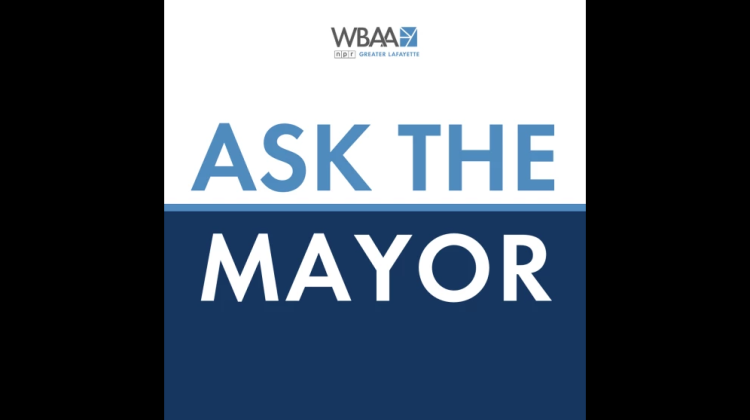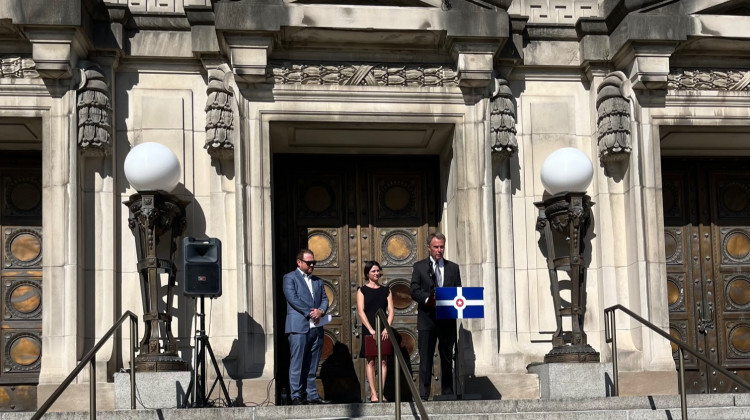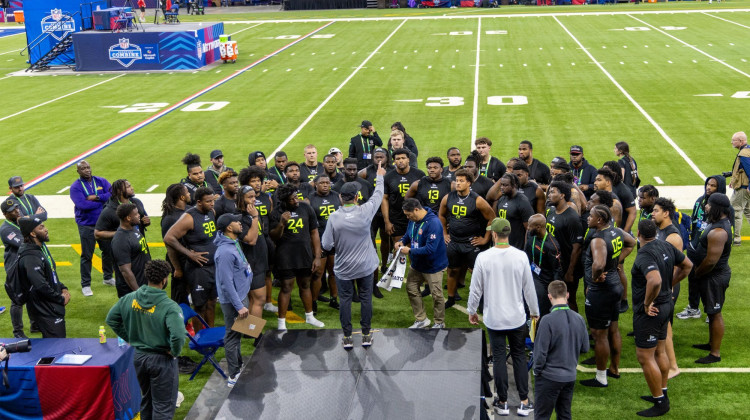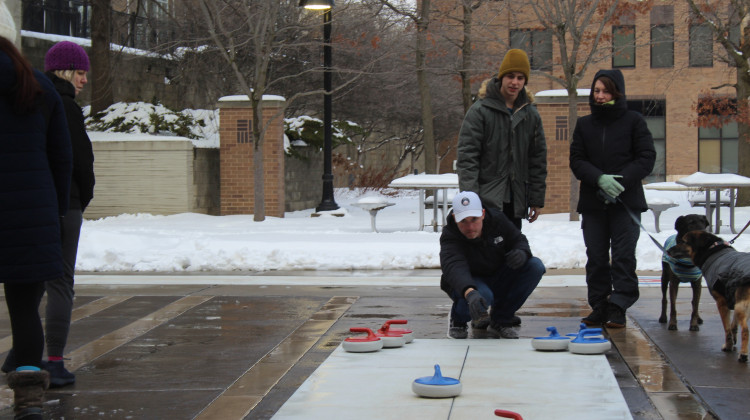
WBAA paused Ask the Mayor at the end of May because we are reevaluating ways to get local content to broader audiences.
WBAAToday we celebrate a show that ran for almost ten years on WBAA – Ask the Mayor. WBAA paused the show at the end of May because we are reevaluating ways to get local content to broader audiences.
As we take this pause, show host and reporter Ben Thorp and editor Jill Sheridan share this conversation about why the show was established and how it evolved.
This interview has been edited for length and clarity.
Sheridan: So Ben, if you could talk a little bit about these conversations with mayors around West Central Indiana, was it a way to get a unique perspective on these different communities?
Thorp: Yeah, I think the thing that I loved about Ask the Mayor is it was such a good way to talk about what was going on in the community beyond, you know, the headlines or the news of the day. Often, Jill, I think, in our stories, there's stuff that we have to cut, you know, about what happened behind the scenes of a resolution, or somebody's, you know, personal feelings about a statewide issue and how it's hitting local officials. But this show was an opportunity for people to talk about that stuff, and to really give airtime to some of those conversations.
Sheridan: And then as something, obviously, that has been going on in West Central Indiana for a while now, a brief history of the Ask the Mayor show, we did go back and talk to Stan Jastrebski who created the show at WBAA. He told me that he had actually pitched this idea to station leadership when he first came to the station. And this is what he had to say about that.
Jastrebski: We wanted to have an ongoing conversation with each of these individual mayors from Lafayette and West Lafayette as well as Frankfort and Crawfordsville, which are the other two biggest cities in the WBAA listening area, and not just have conversations that were unto themselves, but conversations almost between the mayors from week to week. Because the whole idea was, make people understand that you're closer to your neighbors and other cities than you think you are, and that if something is going on in your city, there's a real good chance that there's an analog going on in one of the other local cities as well.
Sheridan: So Ben, if you will tell us a little bit about how you came to host the show.
Thorp: I took over the show in 2022. And that was around the time that WFYI was in the process of taking over WBAA. And so we tried out a shorter format. At that point, we wanted to find a version of the show that wasn't a huge lift. I was the sole reporter covering the Greater Lafayette area at that time. So it made sense to try and pair the show back. We went with an eight minute module that aired in Morning Edition and it worked really great.
Sheridan: So now you've transitioned to a position here at WFYI, on the Health Desk. So as you're moving away from your work on Ask the Mayor, what do you remember as some of the most impactful stories that developed during the time that you were doing the show?
Thorp: One of the things that I really loved about Ask the Mayor was getting to follow stories at the local level before they started bubbling up and becoming sometimes statewide issues. I can't think of a better example of that than the LEAP pipeline question. As you probably know, Jill, the state realized it would need more water for the industrial district and wanted to build in Lebanon and looked to Lafayette to provide some of the water. Here's Lafayette Mayor Tony Roswarski discussing his concerns on Ask the Mayor around that time.
Roswarski: Nobody is against the LEAP project, certainly not against Eli Lilly making a significant investment there. We just want to make sure that this is done right and done thoughtful, and in no way, you know, harms anything in our area.
Sheridan: And so what did you enjoy about the show? I know that it provided an opportunity, like you mentioned, to get to know the mayors outside of your regular coverage. What did you really like?
Thorp: It was a chance to really get to know the mayors but develop, I think, relationships with the mayors. People were coming in, and sometimes they were sitting for an hour and you were just having conversations about life outside of news. One example, I think that really shows this, West Lafayette's John Dennis spent a lot of time towards the end of his tenure, discussing his diagnosis of early onset Alzheimer's disease.
Thorp (to Dennis): You know, it's been about a month since you kind of talked about your early onset Alzheimer's diagnosis. I wanted to just ask you kind of how you're feeling now. And you know, how that announcement has impacted you?
Dennis: Wow. Well, I feel okay. I'm aware that I'm not what I once was. But I'm probably more acutely aware that I will not be what I am. And the progression of that is the only thing I really have no… there's nothing exacting about that. It'll go however it goes.
Thorp: And those shows, sometimes, I think felt really raw.
Sheridan: There are ways that we're trying to expand news in West Central Indiana, we'll be bringing afternoon newscasts to WBAA and we will continue to cover this region here at WFYI and through the Indiana Public Broadcasting Network. But I guess at this point, we would just really like to thank all of the listeners and the mayors for being a part of this show for so many years.
Thorp: Yeah, I mean mostly just a huge thank you to the mayors and you know, to all of their staff. I think I got to know so many folks who scheduled interviews. You develop I think just a lot of great interpersonal relationships with folks working on a show like this, and I'm just really grateful to folks for the time that they gave us.
 DONATE
DONATE






 Support WFYI. We can't do it without you.
Support WFYI. We can't do it without you.